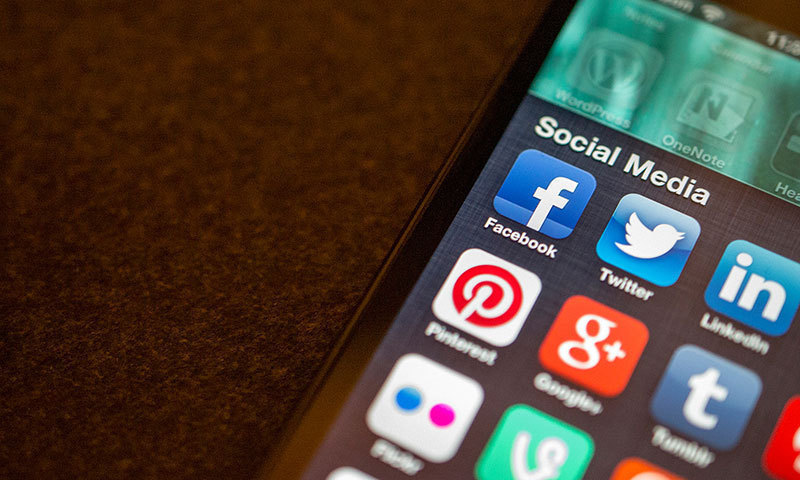Govt forms committee to review social media regulations

The government on Tuesday formed a committee to review social media regulations introduced last year, the office of the Attorney-General for Pakistan said in a statement.
The development comes after the federal government in January informed the Islamabad High Court that it would review the regulations in an ongoing case challenging their formation.

The AGP’s office said Federal Minister for Human Rights Shireen Mazari would be the committee’s chairperson, with MNA Barrister Maleeka Bokhari, Senator Barrister Ali Zafar, secretary IT, and chairman of Pakistan Telecommunication Authority as its members.
The statement further said the committee would furnish its recommendations to Prime Minister Imran Khan within a month’s time — after consultations with the petitioner, Usama Khawar — who filed the case in the IHC — and relevant stakeholders.
During the January IHC hearing, Justice Athar Minallah observed that Article 19 and 19-A of the Constitution are related to fundamental rights and that “it seems that the stakeholders were not consulted in formulating social media rules”.
However, petitioner Khawar interjected and told the court that they were invited earlier for consultations, but none of their recommendations were taken into account.
On that note, Justice Minallah said that the court had appointed a judicial assistant to provide his input in the case, observing that the Pakistan Bar Council and PFUJ were important stakeholders when it came to social media regulations.
Critics cry foul over sweeping rules to control social media
The federal government’s “Removal and Blocking of Unlawful Online Content (Procedure, Oversight, and Safeguards) Rules, 2020” under the Prevention of Electronic Crimes Act, 2016 (PECA) invited strong criticism from internet service providers, digital rights activities, and tech giants alike when it was introduced.
Originally named the “Citizens’ Protection (Against Online Harm) Rules, 2020”, the rules were devised following a September 2019 IHC verdict berating the PTA for failing to frame relevant laws under Section 37 of the PECA law.
Owing to criticism from digital and human rights activists, civil society, journalists, and strong opposition from the Asia Internet Coalition (AIC), the federal government had initially formed a consultative committee to take all stakeholders on board.
On November 2, 2020, the IHC had ordered PTA to issue the new rules within 90 days. The government notified the rules on November 18, with stakeholders saying they were completely bypassed as they were being finalised by the authorities.
What are the rules?
Defining a social media company as “any person that owns or manages online systems for the provision of social media”, the rules create legal liability on individuals associated with the tech company rather than holding the company responsible. They also place internet service providers (ISP) on a par with tech companies in terms of liability.
Section 4 states that any content against (i) the glory of Islam, (ii) integrity, security, and defence of Pakistan, (iii) public order, and (iv) decency and morality can be removed/ blocked. Clause 2 says the rules will prevail and take precedence over “any contrary Community Guidelines” issued by a service provider.
Section 5 states that a complaint can be filed by any person/ their guardian, ministry, division, attached department, subordinate office, provincial or local department or office, law enforcement agency or intelligence agency, or a company owned by the government.
Under Clause 5, the identity of the complainant and the reported content shall remain “confidential”.
Section 6 clause 6 makes it mandatory for social media companies and ISPs to retain information line traffic data linked to the blocked content if asked by the PTA. Section 7 gives them between six to 24 hours to abide by the authority’s bidding.
Section 8 gives PTA the power to block “entire online systems or any services provided by such service providers”.
Under Section 9 (1) the social media companies and ISPs have been directed to issue community guidelines. Adding on to it, clause 2 states that these guidelines “shall inform the user of the online system not to host, display, upload, modify, publish, transmit update or share any online content that belongs to another person and to which the user does not have any right.”
“This is [content that is] blasphemous, defamatory, obscene, pornographic, paedophilic, invasive of another’s privacy, violates or affects religious, cultural, ethnical sensitive of Pakistani or harms minor in any way, impersonates another person or threatens the integrity, security, or defence of Pakistan or public order or causes incitement to any offence under PECA.”
Clause 3 asks them to deploy appropriate mechanisms to identify online content that needs to be blocked/ removed under the rules. Under clause 4, the social media companies “shall not knowingly host, display, upload, publish, transmit, update or share any online content barred under the rules”.
Under clause 5(a), social media companies with over 500,000 users have to register with the Pakistan Telecommunication Authority within nine months while (b) and (c) directs them to establish a registered office and appoint a focal person based in Pakistan.
The rules also ask social media companies and ISPs to establish one or more database servers in the country under clause 5(d) while clause 7 requires them to provide “decrypted readable and comprehensible information” to the Federal Investigation Agency.
Under Section 9 clause 10, the PTA is empowered to impose a penalty of up to Rs500 million on service providers and social media companies.







